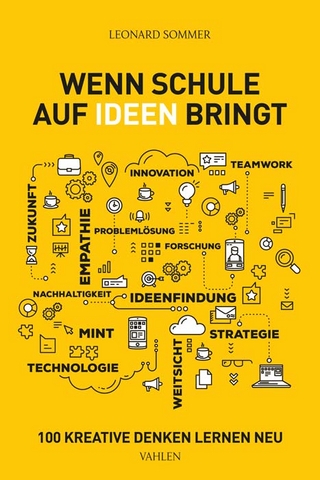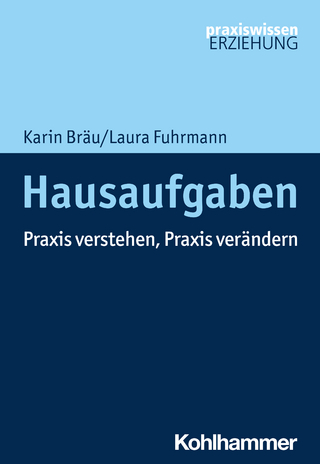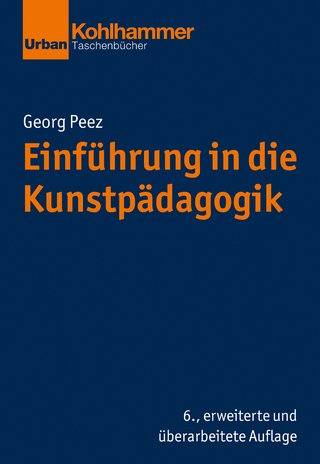
Artificial Intelligence for Supporting Human Cognition and Exploratory Learning in the Digital Age
Springer International Publishing (Verlag)
978-3-031-66461-8 (ISBN)
The Cognition and Exploratory Learning in the Digital Age (CELDA) conference focuses on discussing and addressing the challenges pertaining to the evolution of the learning process, the role of pedagogical approaches and the progress of technological innovation, in the context of the digital age. In each edition, CELDA, gathers researchers and practitioners in an effort to cover both technological and pedagogical issues in ground-breaking studies. Some of CELDA's main topics include: assessment of exploratory learning approaches and technologies, educational psychology, learning paradigms in academia and the corporate sector, student-centered learning and lifelong learning. The CELDA 2023 conference selected and published a selection of papers that focus on the use of Artificial Intelligence and Learning Analytics in the educational context.
Pedro Isaías (pedro.isaias@uab.pt) is an associate professor with habilitation at Universidade Aberta (Portuguese Open University) in Lisbon, Portugal. Pedro is also an adjunct associate professor at the Information Systems & Technology Management School of The University of New South Wales (UNSW - Sydney), Australia. Previously he was an associate professor at The University of Queensland, Brisbane, Australia. At Universidade Aberta, he is currently responsible for several courses in the Information Systems areas. At Universidade Aberta, Pedro was director of the master degree program in Management / MBA and also director of the master degree program in Electronic Commerce and Internet for 10 years. He is co-founder and president of IADIS - International Association for Development of the Information Society, a scientific non-profit association. He holds a PhD in Information Management (in the specialty of information and decision systems) from the New University of Lisbon. Author of several books, book chapters, papers and research reports, all in the information systems area, he has headed several conferences and workshops within the mentioned area. He has also been responsible for the scientific coordination of several EU funded research projects. He is also member of the editorial board of several journals and program committee member of several conferences and workshops. Currently he conducts research activity related to MIS in general, and more specifically Learning Technologies, Data Analytics, Business Intelligence, Digital Transformation, e-Business and WWW related areas. He has more than 170 journal articles, book chapters and books to his credit and has received over 3811 citations resulting in an h-index of 31 (Google Scholar, June 2024).
Demetrios G. Sampson (sampson@unipi.gr) is a Professor of Digital Systems for Learning and Education, Director of the MSc Program on Digital Learning, and Director of the Research Laboratory DiLearn at the Department of Digital Systems, University of Piraeus, Greece. He has been a Professor and Director of Research at the School of Education, Curtin University in Australia (2015-2017) and a Visiting Professor in 8 Universities in 4 continents. He has been engaged in teaching and research in the field of Learning Technologies and Digital Education since 1996. For his research in this field, he is included in the list of the World's Top 2% Scientists in 2022 and 2023 in their fields according to the latest Stanford ranking based on Scopus data. He is the co-author of 312 books (2), journal articles (73), book chapters (57), and conference papers (180), and the editor of 100+ books (21), special issues in academic journals (30), and international conference proceedings (49), with more than 9200 citations (h-index: 44). He has received 10 Best Paper Awards in International Conferences on Learning Technologies. He has been a Keynote/Invited Speaker at 100+ International/National Conferences. He has been director, principal investigator and/or research consultant in 70 Research and Innovation projects He has supervised 180 honors and postgraduate students to successful completion. He has also developed the first Massive Online Open Course (MOOC) on the use of Educational Data Analytics by School Teachers ("Analytics for the Classroom Teacher"), offered by the edX platform which has attracted more than 30.000 participants from 180 countries around the world since October 2016. He served as Editor-in-Chief of one of the first open-access journals in educational technology, the Educational Technology & Society Journal (2003-2018). He has also served or serves as a Member of the Steering Committee and/or Advisory and/or Editorial Board of 30 International/National Journals, in various leadership roles in 85 International Conferences, and at the Program Committee of 700 International/National Conferences. He
Part I: Artificial Intelligence And Its Challenges In Education. Evaluating Popular Mooc Platforms By Generative Artificial Intelligence (Ai) Robots: How Consistent Are The Robots? .- Integrating Large Language Models In Art And Design Education.- Usage Of And Attitudes Towards Ai-Technology In The Learning Processes Of First-Year Students.- Exploring Infranodus: A Text Analysis Tool.- Fostering Problem Solving And Critical Thinking In Mathematics Through Generative Artificial Intelligence.- Part Ii: Does Chatgpt Disrupt Education?. How To Deal With Ai-Powered Writing Tools In Academic Writing: A Stakeholder Analysis.- Homogeneity Of Token Probability Distributions In Chatgpt And Human Texts.- Anchoring Concepts Influence Essay Conceptual Structure And Test Performance.- Chatgpt And Bard In Education: A Comparative Review.- Part Iii: Learning Analytics And Its Applications. Mining, Analyzing, And Modeling The Cognitive Strategies Students Use To Construct Higher Quality Causal Maps.- Grouping Students' Learning Patterns With Manaba's Log Data By K-Means.- Leveraging Emotions To Enhance Learning Success In Online Education: A Systematic Review.- Score Prediction From Programming Exercise System Logs Using Machine Learning.- The Effects Of Learning Analytics-Based Feedback On Knowledge Acquisition: The Role Of Feedback Literacy.- Three Frameworks For Data Literacy.- Part Iv: Exploratory Technologies And Its Benefits. The Effects Of Age And Learning With Educational Robotic Devices On Children's Algorithmic Thinking.- Effects Of An Immersive, Multilinear Future Scenario For Education Purposes.- On The Predictors Of Computational Thinking Self-Efficacy.- Mathematical Problem-Solving By Means Of Computational Thinking And Programming: A Use-Modify-Create Approach.- The Use Of Metacognitive Strategies In Storytelling To Examine Preschool Children's Listening Comprehension Skills.- Tap Or Swipe: Interaction's Impact On Cognitive Load And Rewards In A Mobile Mental Math Game.- Systematic Literature Review Of The Effort Of Gaming Elements On E-Learning Platforms.- Augmented Reality And Virtual Reality In Preservice Teacher Preparation: A Systematic Review Of Empirical Literature.
| Erscheinungsdatum | 10.08.2024 |
|---|---|
| Reihe/Serie | Cognition and Exploratory Learning in the Digital Age |
| Zusatzinfo | XXIV, 273 p. 83 illus., 69 illus. in color. |
| Verlagsort | Cham |
| Sprache | englisch |
| Maße | 155 x 235 mm |
| Themenwelt | Sozialwissenschaften ► Pädagogik |
| Schlagworte | Artificial Intelligence • CELDA 2023 • ChatGTP and its Role in Education • educational administration • Educational technology • Learning Analytics • Learning Technologies • Online Learning • Teacher Preparation • technology integration in learning and instruction |
| ISBN-10 | 3-031-66461-2 / 3031664612 |
| ISBN-13 | 978-3-031-66461-8 / 9783031664618 |
| Zustand | Neuware |
| Informationen gemäß Produktsicherheitsverordnung (GPSR) | |
| Haben Sie eine Frage zum Produkt? |
aus dem Bereich


